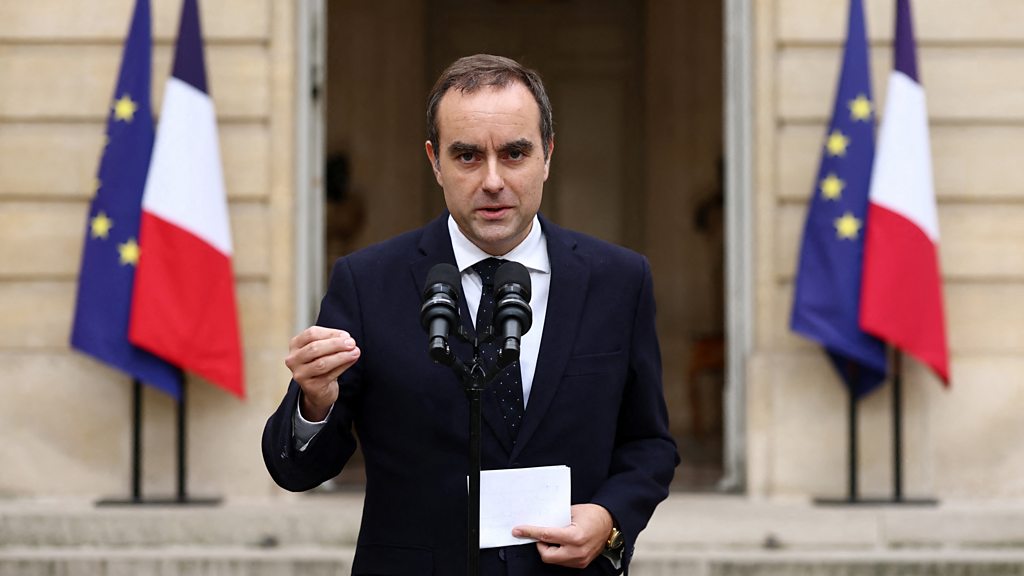France is facing renewed political instability following the resignation of Prime Minister Sébastien Lecornu, who stepped down after just 26 days in office.
Shortly after his resignation, Lecornu accepted a request from President Emmanuel Macron to develop a plan to restore “stability for the country” by Wednesday evening.
The unexpected move capped a day of political turbulence that saw stocks on the Paris exchange tumble amid fears that France’s fragmented political parties might be unable to address the nation’s economic challenges.

Lecornu’s surprise resignation on Monday morning came a day after he unveiled his cabinet, making him the third French prime minister to leave office since December 2024. His ministerial line-up had faced fierce criticism from parties in the National Assembly, who threatened to reject it.
The appointment of former Finance Minister Bruno Le Maire as Minister of the Armed Forces appeared to be a particular point of contention. On Monday afternoon, Le Maire announced his withdrawal from the cabinet in a bid to defuse the crisis.
Following this, the Élysée Palace confirmed that Lecornu had been given an additional 48 hours to see whether negotiations with political parties could produce a “stability plan” for France.
Lecornu had only been appointed in September after the government of François Bayrou collapsed when MPs refused to approve his budget. Bayrou himself succeeded Michel Barnier, who was ousted last December. France’s political landscape has been highly unstable since July 2024, when Macron called snap parliamentary elections in an attempt to secure a clear majority after his party suffered losses in the European Parliament vote.

Instead, the elections resulted in a hung parliament divided among ideologically opposed factions unwilling to cooperate.
Sources close to the presidency told French media that if Lecornu fails to secure stability by Wednesday, Macron is prepared to “take responsibility” for the next steps.
Several parties are calling for early elections, while some are urging Macron to step down, though he has repeatedly stated he will remain in office until the end of his term in 2027.
Macron now faces three options if Lecornu’s attempt fails: appoint another prime minister, dissolve the National Assembly again, or resign himself. The most likely route is to appoint a new prime minister. However, finding a candidate may be challenging. Lecornu, a staunch Macron loyalist, was considered the president’s last viable option—and even he failed.
Appointing a Socialist prime minister could be another possibility, though a leftist government would likely struggle to maintain stability. Consequently, new legislative elections may be the most practical solution. Such elections could deal a severe blow to Macron’s centrist coalition while bolstering the hard-right under Marine Le Pen.
Lecornu, who previously served as Armed Forces Minister, became France’s fifth prime minister in less than two years.

In a brief statement outside the Hôtel de Matignon, Lecornu criticized the “partisan appetites” of political factions, claiming they acted “as if they had an absolute majority.”
“I was ready for compromise, but all parties demanded that the others adopt their programs entirely,” he said.
“It wouldn’t take much for this to work, but parties need to be more humble and set aside egos,” he added.
Deep political divisions have made it difficult for any prime minister to secure the necessary support to pass legislation. Michel Barnier, appointed last September, was toppled in a vote of no confidence within three months. François Bayrou’s government lasted nine months before Parliament rejected his austerity budget, which proposed cuts of €44 billion ($51 billion; £38 billion).
France’s economic challenges remain significant, with a deficit of 5.8% of GDP in 2024 and national debt reaching 114% of GDP—the third-highest in the eurozone after Greece and Italy, equivalent to nearly €50,000 per citizen.




